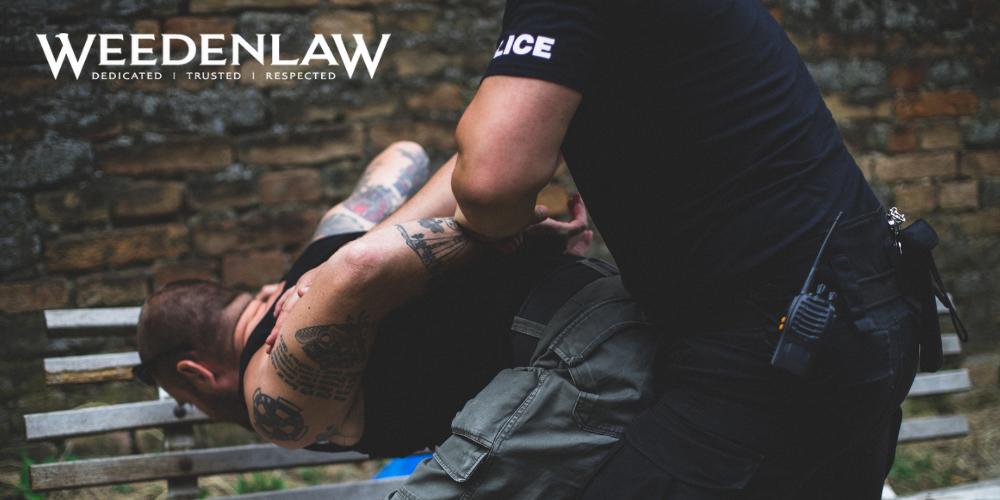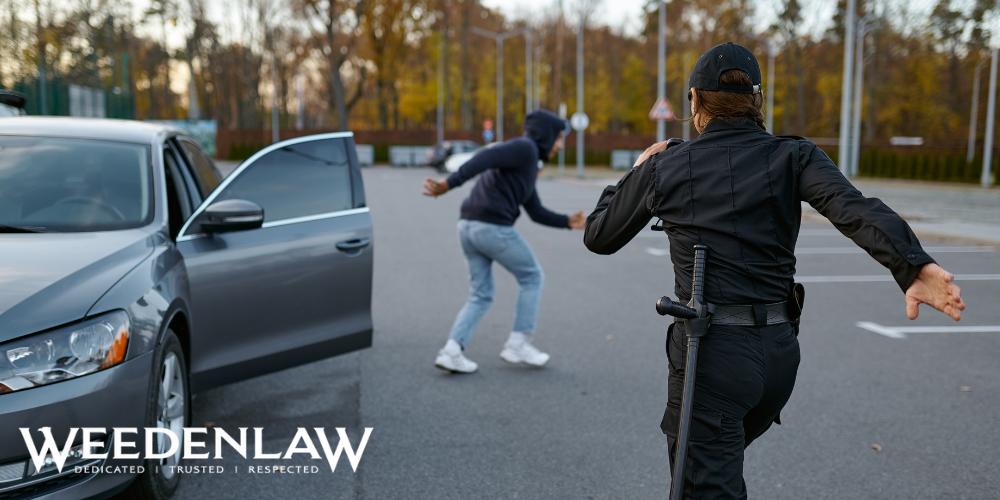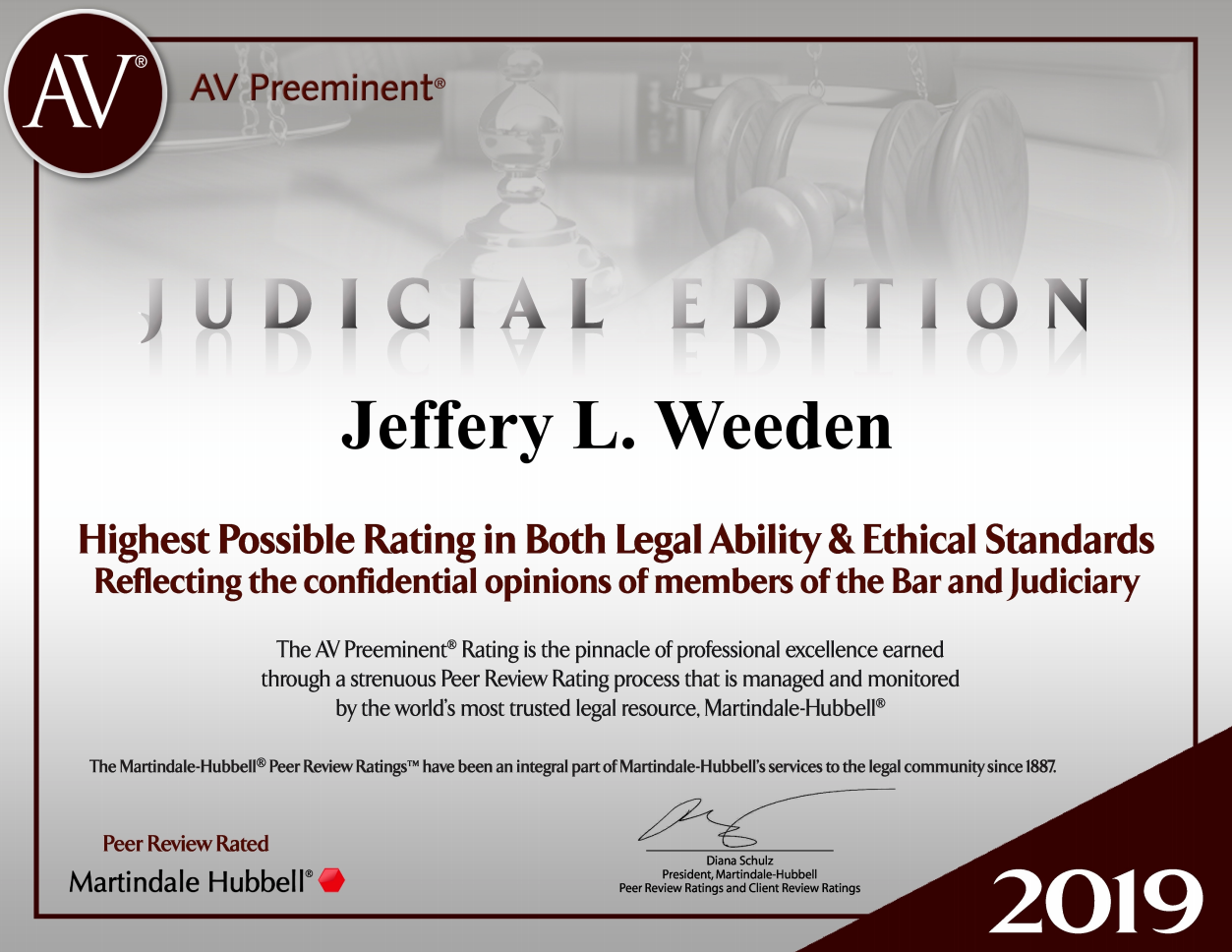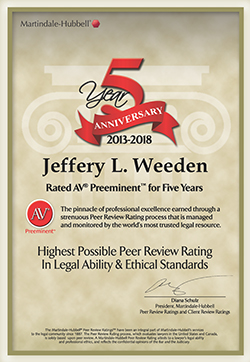Denver Criminal Defense Attorney for Resisting Arrest Charges
When someone says or does something that impedes a police officer’s ability to arrest someone, they can be charged with resisting arrest. While resisting arrest can be dangerous for law enforcement officers, they may abuse their powers and falsely accuse someone of resisting arrest. That’s why it’s so important that those accused of resisting arrest call an attorney with an in-depth understanding of Colorado criminal law.
If you have been charged with resisting arrest, call the Denver criminal defense attorneys at WeedenLaw today. With over 15 years of experience in Colorado courts, we can help you navigate the legal system and understand the charges you’re facing. Not only that, but we can help you receive a favorable verdict regarding your case. Call us at (720) 307-4330 to schedule a free initial consultation with a criminal defense attorney today.

Resisting Arrest Definition
Resisting arrest occurs when someone acts in a way that prevents a police officer from arresting themselves or another person. The legal definition for resisting arrest in Colorado can be found in Colorado’s Revised Statutes Section 18-8-103.
C.R.S. 18-8-103
Under Colorado law, someone can be found in violation of C.R.S. 18-8-103, if they knowingly prevent, or even attempt to prevent, a peace officer from enacting an arrest by:
- Using, or threatening to use, physical force or violence against the peace officer or another; or
- Using any other means which creates a substantial risk of causing bodily injury to the peace officer or another.
What are the Legal Elements of Resisting Arrest?
In Colorado, resisting arrest requires a few specific elements, but it can be used in a lot of different situations. When a peace officer acts within their assigned duties, it is unlawful to prevent them from doing so. This includes police officers, government agents, or other law enforcement personnel.
When an officer makes an arrest, it’s assumed to be made under good faith and to be based on the surrounding facts or circumstances of the situation. While this may not always be the case, it is still unlawful to prevent them from completing this duty. Resisting an unlawful arrest is still considered resisting arrest.
In order for someone to be considered in violation of Colorado’s resisting arrest law, they have to have knowingly prevented or attempted to prevent a police officer from completing an arrest by:
- Threatening to use physical force or violence;
- Using physical force or violence; or
- Creating substantial risk for bodily injury.

Colorado’s resisting arrest charge also extends to other people’s arrests. For example, if you tackle a police officer while they are trying to arrest someone else, you could be charged with resisting arrest.
Under Colorado law, “bodily injury” is defined as any physical pain, illness, or impairment of physical or mental condition, so creating a situation in which a police officer is merely at risk for harm could be considered resisting arrest. For example, if a police officer is trying to arrest someone and you throw a rock at the officer, you could be charged with resisting arrest even if the rock doesn’t hit them.
It’s important to note that the peace officer has to have identified themselves to be a peace officer and have shown their credentials that prove his or her official authority. Additionally, the peace officer cannot use excessive force when making the arrest. If a police officer fails to identify themself or if they use excessive physical force when making an arrest, then the person they arrested may not be found guilty of resisting arrest.

What are the Penalties for Resisting Arrest in Colorado?
When a person commits resisting arrest in Colorado, they can be charged with a class 2 misdemeanor. This is typically punishable by anywhere between 3-12 months in prison, a fine of anywhere between $250 and $1,000, or both.
Challenging Resisting Arrest Charges
If you are charged with resisting arrest, you need a skilled attorney who can help you fight that charge and any other charges you may be facing. Denver criminal defense lawyer Jeff Weeden is experienced in handling criminal cases, including those involving police, and can help you receive a favorable plea deal or even have your charges dismissed. Call our law office at (720) 307-4330 today and schedule a free consultation with a criminal defense attorney.

Legal Defense in Colorado Resisting Arrest Cases
It can be difficult to fight against a resisting arrest charge, but it’s far from impossible. Since Colorado’s resisting arrest statute requires so many elements, if one element is missing from your case, you may have your resisting arrest charge dropped. Attorney Weeden will analyze the elements of your case and search for any grounds that may warrant a dismissal of your charges.
Proving a Lack of Intent, False Accusations, or Unlawful Physical Force by a Law Enforcement Officer
One way to defend against resisting arrest charges is if the officer did not identify themselves as a peace officer or if they did not state their intent. If someone doesn’t know they are being arrested, they can’t knowingly resist arrest.
Also, if a police officer falsely accuses someone of resisting arrest, a criminal defense lawyer can evaluate any body cam, dash cam, or security cam footage to help prove that the accusations were false.
People have a right to defend themselves, even against a law enforcement officer. When police officers use unreasonable or excessive force when arresting someone, the person being arrested can claim that they were simply using self-defense, not resisting arrest.

For Defense Against Resisting Charges, Call Denver Criminal Defense Attorney Jeff Weeden Today
Being arrested can be a very stressful situation, but if you are not being harmed, it’s important to not fight back, remain silent, and call a criminal defense attorney who can help you with your case as soon as possible. If you are charged with resisting arrest, let an experienced criminal defense lawyer at WeedenLaw help. Call our law office at (720) 307-4330 or fill out our online form and schedule a free consultation with us so that we can get to work on your case right away.
































